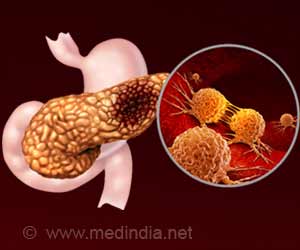A harmful protein that is known to spread cancer cells around the body could hold the key to allowing the brain to repair itself finds Danish scientists.

They found that the protein S100A4 plays a crucial role in brain protection and repair.
Scientists have known the protein as a key factor in metastasis, or the spread of cancer. It is not found in the brains of healthy individuals.
"This protein is not normally in the brain, only when there's trauma or degeneration," the Daily Express quoted lead researcher Oksana Dmytriyeva as saying.
"When we deleted the protein in mice, we discovered their brains were less protected and less able to resist injury. We were surprised to find this protein in this role as we thought it was purely a cancer protein.
"We are very excited and hope the finding will eventually benefit people who need treatment for neurodegenerative disorders like Alzheimer's, though obviously we have a long way to go," Dmytriyeva added.
Advertisement
Advanced tests are now being carried out in the light of the breakthrough, with those involved in the research convinced this will benefit Alzheimer's sufferers within years rather than decades.
Advertisement
Their findings appeared this week in the journal Nature Communications.
Source-ANI














